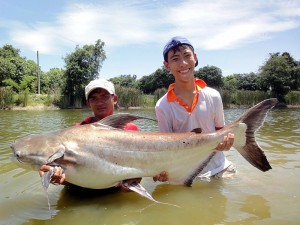One of the most common questions I get during my “ask me anything” sessions on twitter is “which species of sharks are the most endangered?” Whenever I can’t completely answer a question in a single tweet, I like to link to more information from a reliable source.
However, I’ve struggled to easily answer this question with a link, because much of the information out there about this particular question is incomplete, misleading, or just wrong. Several online lists of the most endangered species of sharks* don’t actually include the most endangered species of sharks. Many of these lists could be re-titled as “the conservation status of some species of sharks I’ve heard of and could easily find pictures of” or “some random information I heard out of context about shark conservation.” Since there isn’t an easily accessible source of accurate information about this important shark science and conservation topic, I’ll make one myself. ( I should note here that I am referring only to true sharks, not to other chondrichthyans, even though other chondrichthyans in many cases face similar or worse threats. )
Read More “A scientifically accurate list of the most endangered sharks in the world” »




